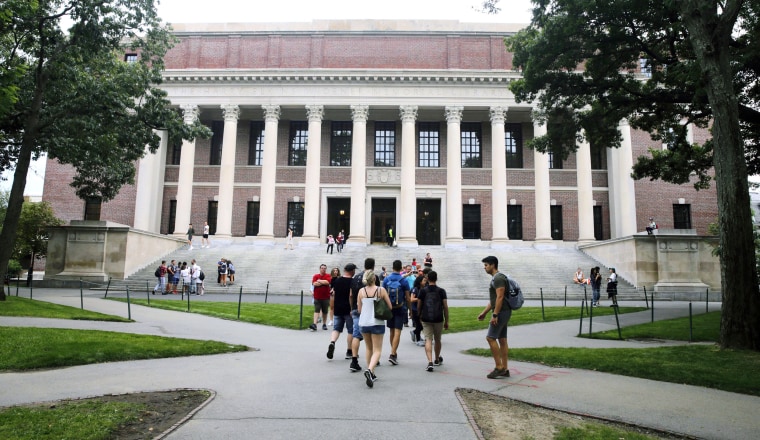A federal appeals court panel Thursday said Harvard University's limited consideration of race in its admissions practice was a legitimate attempt to achieve diversity in the student body and did not violate the Constitution.
The ruling, by two judges of the 1st Circuit Court of Appeals, is a defeat for a group of Asian Americans who claimed Harvard discriminated against them in admissions. The Trump Justice Department had sided with them under Attorney General Jeff Sessions, saying that "Asian Americans face a significant disadvantage in Harvard's admissions program compared to applicants of other races."
Three judges from the appeals court heard the case in September, but one of them, Juan Torruella, died last month before the case was decided.
The lawsuit was filed in 2014 and involved court fights over how much Harvard was obligated to reveal about the mechanics of its admissions practices. Though it is a private university, it receives millions in federal grants, requiring it to abide by federal civil rights laws that ban discrimination based on race and other factors.
A federal judge rejected their suit, and the appeals court judges affirmed her conclusion. Thursday's ruling said Harvard did not engage in racial balancing or use quotas. The school considered race among other characteristics in seeking to achieve student diversity "as part of a holistic review process," it said.
The group suing Harvard — Students for Fair Admissions — was led by Edward Blum, a consistent opponent of affirmative action. His efforts were behind the Supreme Court's most recent affirmative action decisions which upheld the use of race to achieve diversity in the admissions program at the University of Texas at Austin.
He said he was disappointed in Thursday's ruling but said "our hope is not lost." He said will likely appeal the case to the Supreme Court, "where we will ask the justices to end these unfair and unconstitutional race-based admissions policies at Harvard and all colleges and universities."
When Anthony Kennedy was on the Supreme Court, he expressed skepticism about affirmative action in college admissions but was key to allowing it to continue. The current, more conservative court will probably be less willing to allow it to continue.

